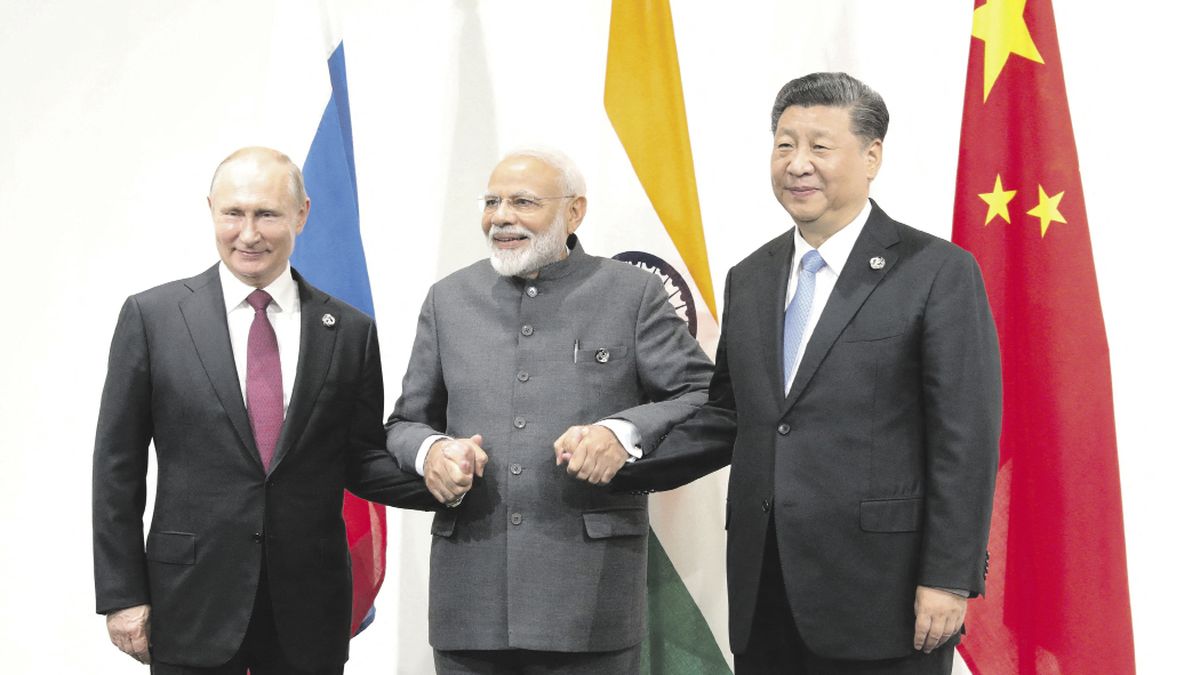Beijing – Xi Jinping’s decision to sit out the G20 summit hints at deteriorating China’s relations with other powers, as well as growing secrecy at the top of the ruling Communist Party, analysts said.
The Chinese Foreign Ministry said yesterday that Premier Li Qiang will represent the country at the summit of leaders of the world’s major economies in New Delhi this weekend, confirming the de facto absence of President Xi.
Beijing did not explain the reasons for Xi’s decision, which had not missed any of these summits since he came to power, with the exception of the one in Rome in 2021 in which he participated electronically due to covid restrictions.
His presumed absence contrasts with his leading role in August at the summit of the BRICS group of emerging economies in South Africa, in which the admission of six new members was approved.
By prioritizing ties with the developing world, Beijing is trying to “create an alternative to the US-dominated liberal international order since the end of World War II,” said Steve Tsang, director of the SOAS China Institute at the University of London.
realignment
This realignment “is China-friendly, but rather Sinocentric, as it gathers and consolidates support in the Global South,” Tsang said. “The G20 is not something that China can dominate, so it gets less priority,” she added.
The absence of the G20 also undermines hopes for new exchanges with Western powers after the central role assumed by Xi at the last November summit on the Indonesian island of Bali.
Experts partly attribute the decision to longstanding tensions with the host country, India.
“China-India relations have not been smooth since 2020 and China has been complaining that India is using the G20 to consolidate its claims over disputed territories,” said Yun Sun, director of the China program at the US think tank. Stimson Center.
Beijing and New Delhi have had a decades-long Himalayan border dispute that has sparked deadly skirmishes in recent years.
India has also shown “greater opposition to China’s claims to the South China Sea and has intensified its restrictions or bans against China’s technology exports or direct investment,” said Shi Yinhong, a professor of international relations at Renmin University of China in Peking.
In this G20, a meeting between Xi and US President Joe Biden was also expected, who last week said he would be “disappointed” if his Chinese counterpart did not show up.
But the “increasingly clear” prospect of a November meeting in San Francisco during the APEC summit may have made Xi’s attendance at the G20 “less imperative,” Shi said.
secrecy
A spokeswoman for Chinese diplomacy this week dodged questions about Xi’s absence, merely repeating the statement announcing Prime Minister Li’s trip to India.
The Chinese Communist Party rarely discloses information about its leaders. This secrecy has recently been exposed several times.
Former foreign minister Qin Gang was suddenly removed from office in July and has not been seen in public since.
At the BRICS summit, Xi did not show up for a speech he had scheduled and sent his trade minister to read it for him.
Tsang of the SOAS Institute points to a possible health problem for Xi, 70, as well as a desire for “more control and secrecy” in the process of pushing China’s “totalitarian leadership.”
A diplomat from another G20 country said the Chinese president may want to avoid hard questions about Russia’s invasion of Ukraine, which Beijing has not condemned. “The emperor does not want to be asked uncomfortable questions,” he said.
AFP Agency
Source: Ambito




